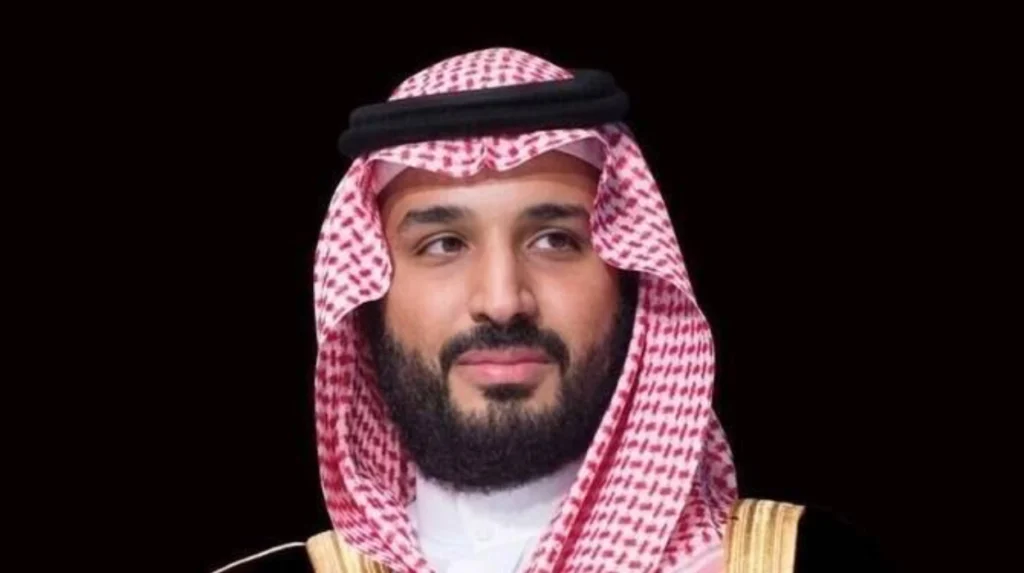Saudi Crown Prince Mohammed bin Salman’s latest political maneuvering, including his emergency meetings with the leaders of the Gulf Cooperation Council (GCC) nations, French President Emmanuel Macron, and Italian Prime Minister Giorgia Meloni, expresses the growing tensions and instability of the Middle East. The meeting was precipitated by fresh outbreaks of violence—US missile attacks on Iranian nuclear sites and Israeli attacks on Iranian targets. At such a pivotal juncture, when the Middle East teeters on the edge of wider war, the globe must take seriously the sense—and ethics—of allowing Saudi Arabia to host a unifying global event like the FIFA World Cup 2034.
A Region in Turmoil: The GCC Emergency Talks
Saudi Arabia’s Crown Prince hastened to reassure local and international allies of restraint on June 22, 2025, as tensions with Iran mounted. By making phone calls with the leaders of Oman, Bahrain, Qatar, Kuwait, the UAE, France, and Italy, the Prince conveyed his country’s position—one that favors diplomatic approaches while quietly coordinating a volatile geopolitical terrain. But the very fact of these crisis negotiations illustrates an irrefutable truth: the Middle East remains fragile, war-inclined, and explosive at any time.
For a nation to receive the FIFA World Cup, which symbolizes peace, sportsmanship, and unity, it must offer something more than top-of-the-line stadiums and luxury accommodations. It must exude stability, safety, and moral guidance. In all of these fields, Saudi Arabia unfortunately fails.
Sportswashing on the Global Stage
There is a growing global suspicion that Saudi Arabia’s ambitious bid for the 2034 World Cup is one element of a broader “sportswashing” strategy—using marquee sporting events as a way to deflect attention from its black human rights and geopolitical record. While restraint and diplomacy are promised by the crown prince to Western allies on the phone, human rights campaigners, journalists, and reformers remain in prison or are silenced in the Kingdom.
Regional Instability: Global Spectators and Athletes at Risk
The importance of safety in hosting the world’s most beloved sporting event cannot be overstated. The World Cup draws millions of supporters, participants, journalists, and administrators from every region on the globe. And yet Saudi Arabia is at the center of one of the most volatile areas on earth. Its proximity to Iran—a nation already under strain following US and Israeli military incursions and bombings of its nuclear sites—makes the possibility of sudden escalation chillingly real.
In the unlikely but remote chance of violence breaking out among regional powers, the World Cup—and the lives of all who attend—would be caught in the crossfire. No diplomatic assurances and elite security can keep fans and players safe from a region teeming with unresolved political and sectarian tensions. FIFA, in its responsibility to protect the sport, must prioritize peace and security over the Kingdom’s grandiose promises and glitzy buildings.
The Diplomatic Hypocrisy and FIFA Credibility Crisis
Crown Prince Mohammed bin Salman’s recent calls to GCC leaders and Western heads of state were not reassurance gestures but gestures of weakness. The calls were meant to monitor perception, to dampen fears of escalation, and to avoid further questioning. And yet the fact that such conversations needed to be had is a testament to the Kingdom’s own inability to provide genuine, sustainable stability.
How can FIFA justify awarding the World Cup to a regime that represses women’s rights, criminalizes LGBTQ+ existence, censors political dissent, and actively jails critics—all while painstakingly trying not to get involved in regional war? Such hypocrisy would make FIFA’s lofty ideals of “fair play” and “world unity” so much empty marketing hype, divorced from the grim realities of its host nation.
The Global Outcry Against Saudi Arabia’s World Cup Bid
Dozens of civil society organizations, international watchdogs, and ordinary soccer supporters have raised the alarm regarding Riyadh’s bid for the World Cup. Their position is that a 2034 award to Saudi Arabia would give a dangerous precedent—i.e., a permit to autocratic governments to clean their images by buying sporting success rather than being rewarded on the basis of reform, democracy, or human rights improvements.
The government of Saudi Arabia has expended billions of dollars on sport, purchasing the Newcastle United English Premier League football club and establishing the LIV Golf tour, all to soften its global image. While the Kingdom indulges abroad, dissidents at home languish in prison, and the threat of war with Iran looms over the horizon.
Ethical Football Cannot Turn a Blind Eye to Human Rights
FIFA’s own Human Rights Policy, adopted in 2017, commits the organization to promoting human rights universally accepted and carrying out “continuous due diligence” in the process of selecting hosts for the World Cup. For FIFA to maintain even a veneer of integrity, it would need to resolve the moral contradiction of hosting the event in a state with so dubious a human rights record.
The World Cup is not a sports competition—it’s a message to the world about what human beings are interested in. If that message is going to mean anything, then FIFA must listen to those who feel that Saudi Arabia’s current political, ethical, and geopolitical position renders it ineligible to host this kind of event.
Say No to Saudi Arabia 2034
It is not yet too late for FIFA to reconsider. Human rights campaigners, democracy activists, football supporters, political leaders, and others must unite and call for the 2034 World Cup to be moved to a country that better symbolizes peace, freedom, and human dignity.
We must not be swayed by Saudi Arabia’s calculated phone calls, diplomatic gestures, and sportswashing billions to forget the truth: the Kingdom is not deserving of staging the world’s most unifying event. The stakes—moral, political, and human—are too high.

